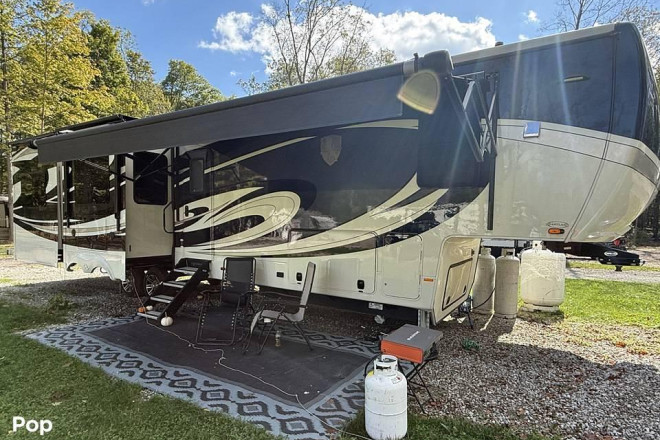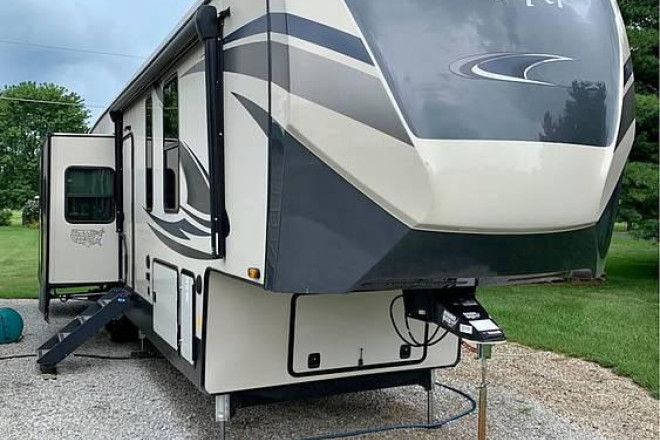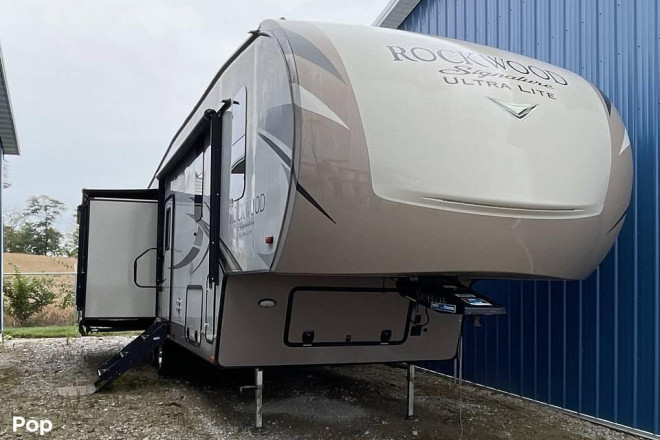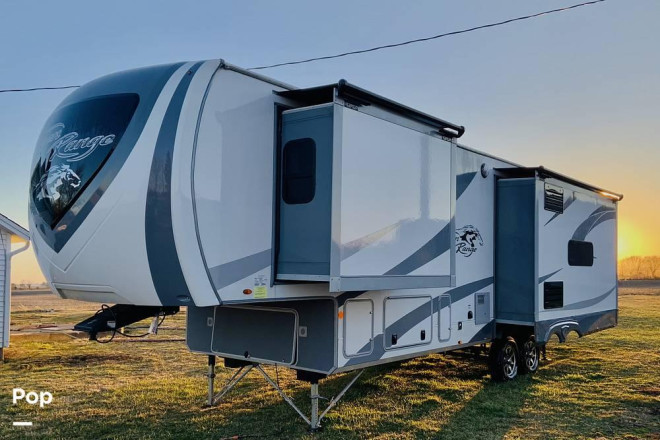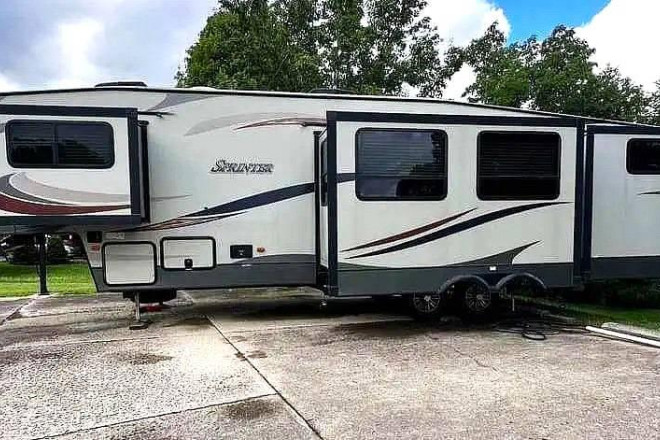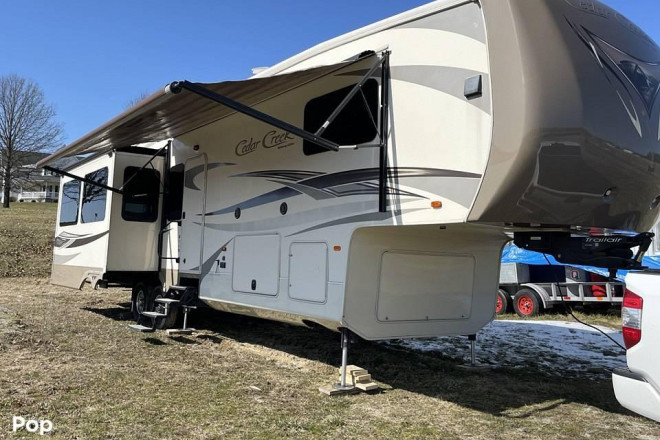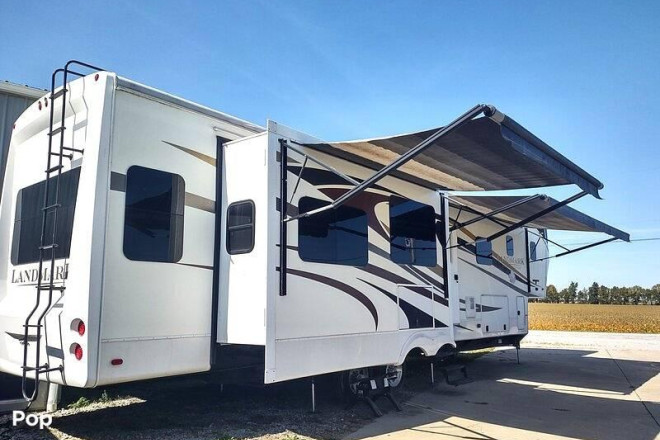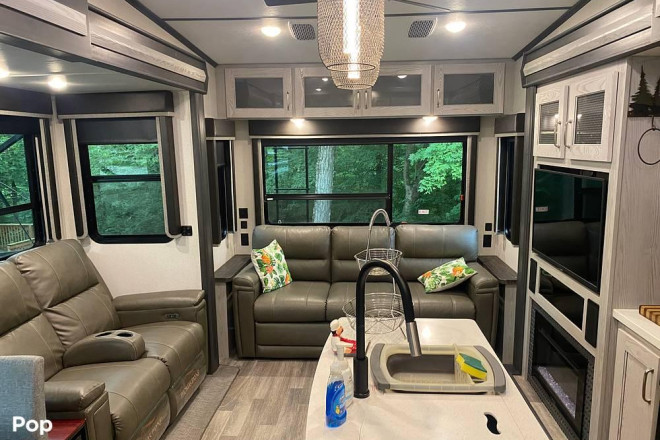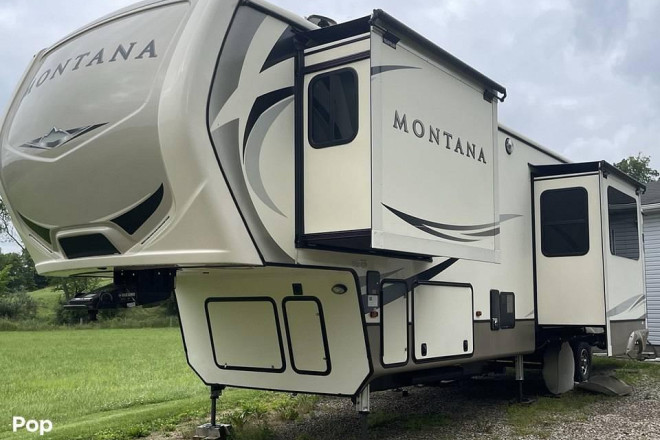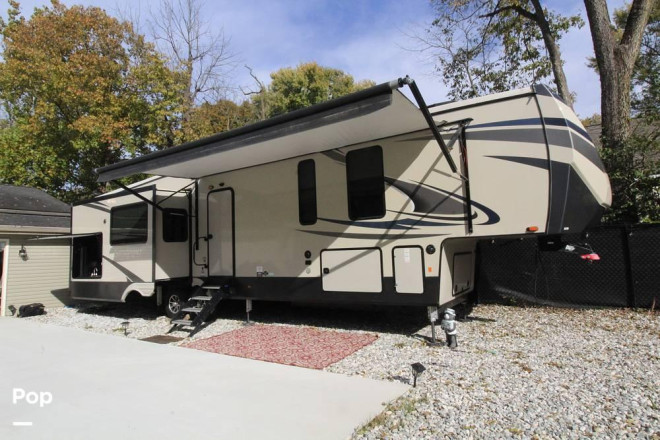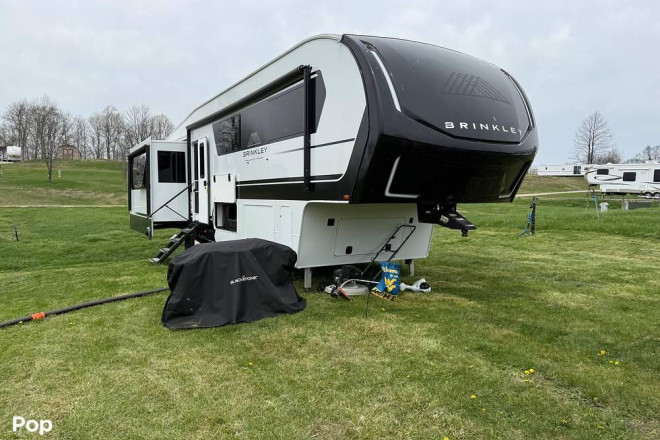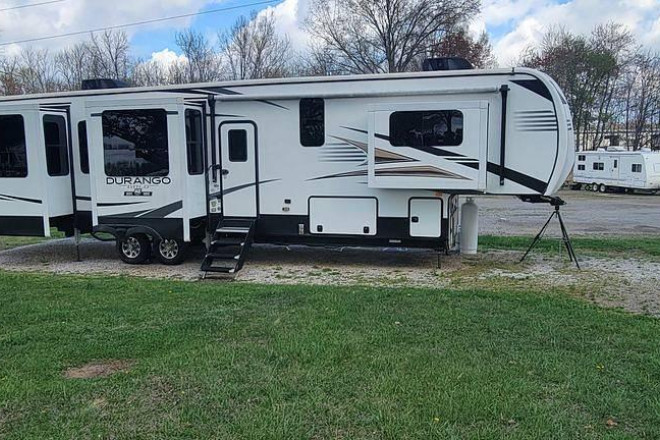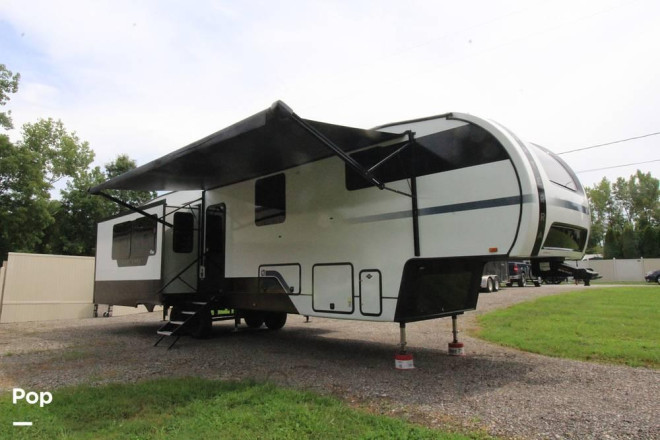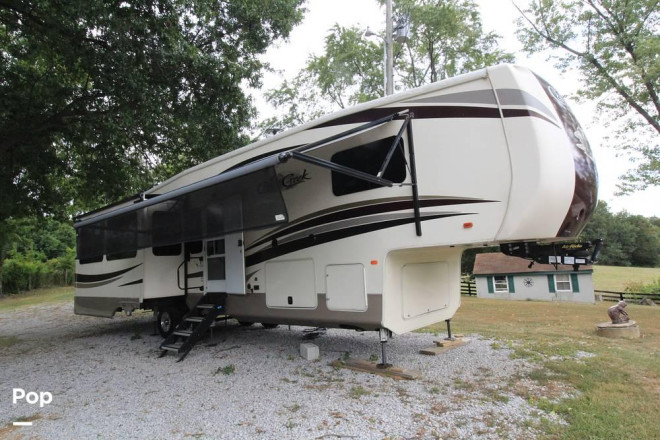
Exploring the World in Style.
The Fifth Wheel camping trailer is a popular and versatile choice for many RVers, offering an extended-stay option or full-time travel. It stands out with its distinctive overhang above the truck bed, which can be used as a bedroom or living room space.
The Fifth Wheel is designed to be towed by a pickup truck with a special hitch in the bed. This hitch acts as a pivot point, allowing the trailer to pivot when turning, resulting in better handling and stability than other travel trailers. The hitch also provides a strong and stable connection between the truck and the trailer, making it easier to tow and maneuver on the road.
Fifth Wheels offer more living space and storage compared to other types of travel trailers, so you can enjoy all the comforts of home while you're on the road. This includes a full kitchen, a comfortable sleeping area, a bathroom, and plenty of storage for your clothes, food, and other essentials.
Search Available Fifth Wheel RVs Value Your Fifth Wheel RVsWhen looking to buy a quality
Fifth Wheel recreational vehicle, consider these top Fifth Wheel Manufacturers:
Coachmen, Keystone, Forest River, Redwood, Dutchmen, DRV, Winnebago, Gulf Stream, Escape and Heartland.
View All Brands
Fifth Wheel RVs FAQ
Are Fifth Wheels easy to tow?
Fifth wheels are generally considered to be easier to tow compared to other types of travel trailers. This is because they have a special hitch in the bed of the towing vehicle that acts as a pivot point, allowing the trailer to pivot when turning, which results in better handling and stability.
What is the average cost of a Fifth Wheel?
The average price of a Fifth Wheel RV can range from $30,000 to $150,000 or more, depending on the brand, model, size, and features. Higher-end models can cost upwards of $300,000. The final price can also vary depending on factors such as location, dealer, and financing options.
Can you drive a Fifth Wheel on a normal car license?
In general, you do not need a special license to drive a Fifth Wheel RV. However, the requirements can vary depending on the weight of the RV and the state you are in.
In the United States, if the combined weight of the RV and all its contents is less than 26,000 pounds, a standard driver's license is typically sufficient. For RVs that weigh more than 26,000 pounds, a commercial driver's license (CDL) may be required. It's best to check the specific regulations in your state.
What are the benefits of a Fifth Wheel RV?
Fifth wheel RVs offer more space and comfort than traditional travel trailers, with many models featuring luxurious amenities such as full kitchens, private bedrooms, and spacious living areas. They can also be hitched and unhitched very quickly. Fifth Wheel RVs also have a higher center of gravity compared to travel trailers, which can provide more stability and reduce the chances of tipping over.
What is the lifespan of a Fifth Wheel?
The lifespan of a Fifth Wheel RV can vary depending on several factors, including the make, how often it is used, and how well it is maintained. On average, a Fifth Wheel RV can last between 10 to 20 years or more with proper care and maintenance.
What is the best month to buy a Fifth Wheel?
The best month to buy Fifth Wheel RV can vary depending on the dealer and location. However, the end of the year, typically in November and December, is often considered a good time to buy an RV as dealers may be looking to clear out their inventory to make room for new models. During this time, dealers may offer discounts and promotions to attract buyers.
Can a Fifth Wheel tip over in high winds?
Yes, a Fifth Wheel RV can tip over in high winds, especially if it is not properly secured. High winds can cause the RV to be blown off balance, making it susceptible to tipping over.
To prevent tipping in high winds, it's important to make sure that the fifth wheel is properly hitched and secured to the truck, and that the truck and RV are not overloaded. It's also recommended to park the RV in a sheltered area, such as a campground or RV park, and to use stabilizing jacks or chocks to secure the RV to the ground.
